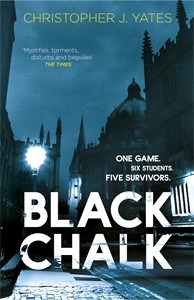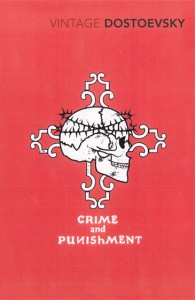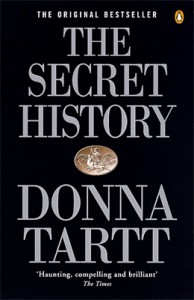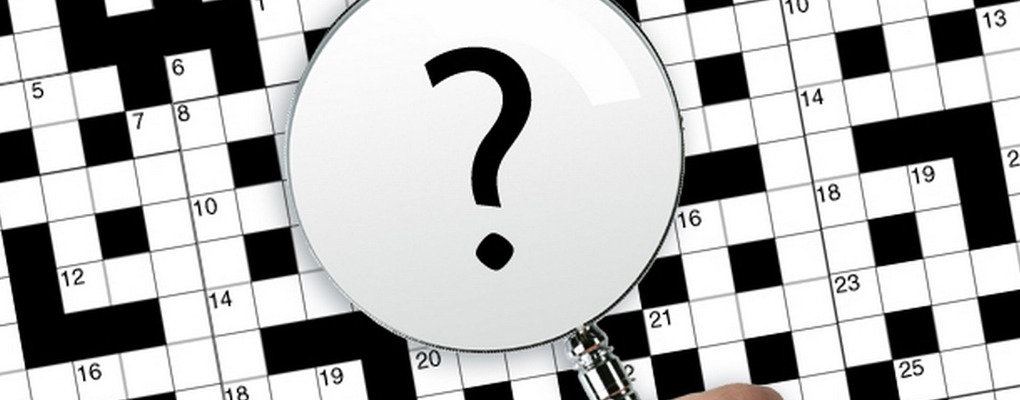Books
The Puzzling Thing About Crime Fiction…
In a review of my debut novel Black Chalk, The Times described the book as an ‘intricate psychological puzzle thriller’ – words that caught my attention because, although I’m fairly certain the reviewer didn’t know this, I work as a professional puzzle compiler and editor when I’m not writing. So had my day job leeched into my writing or is there an obvious connection between a certain type of novel and a good puzzle?
I started working in puzzles at 22. I’d run away from being a lawyer and wasn’t brave enough to start writing fiction, which is what I really wanted to do. My first position was editor of Word Search magazine. When I landed the job, my mother sent me a photo. It was me, aged ten, pencil poised over a puzzle magazine. The magazine was Word Search.
 For almost a decade I worked eight hours a day in an office compiling and editing puzzles. But this wasn’t enough for me. Even sitting on the tube, commuting to work or on my way home, I would always have three things in my bag. A good book, a cryptic crossword and a pen. And I wouldn’t allow myself to start reading the book until the crossword was solved.
For almost a decade I worked eight hours a day in an office compiling and editing puzzles. But this wasn’t enough for me. Even sitting on the tube, commuting to work or on my way home, I would always have three things in my bag. A good book, a cryptic crossword and a pen. And I wouldn’t allow myself to start reading the book until the crossword was solved.
Having loved puzzles for so long, perhaps it was only natural that when I started writing I would treat the task like a puzzle. My plot outline for Black Chalk resembled a logic problem – I needed to carefully seed my story with revelations and clues to lead the reader to a surprising but satisfactory solution. But it also looked a lot like join-the-dots. I knew seven things that would happen in the story, maybe twenty pages-worth. But how would I string these plot pieces together? I had no idea. So I sat down at my desk every morning and tried to work it out. Slowly – very slowly – everything meshed. Finally all the jigsaw pieces came together.
The novelist John Irving works in a not dissimilar way, coming up with the final lines of his novels first. “I write the last line, and then I write the line before that. I find myself writing backwards for a while, until I have a solid sense of how that ending sounds and feels.” Well, what else is this but a self-imposed puzzle? Here’s the last line, but how on earth do I get there?
 But more than this, not only can the writing process be the solving of self-imposed puzzles, but certain genres very naturally resemble puzzles. What is a whodunit but a puzzle where the solution is gradually revealed to the readers, most of whom are trying to figure out the answer themselves prior to its revelation?
But more than this, not only can the writing process be the solving of self-imposed puzzles, but certain genres very naturally resemble puzzles. What is a whodunit but a puzzle where the solution is gradually revealed to the readers, most of whom are trying to figure out the answer themselves prior to its revelation?
Other books are why-dunits. In Crime and Punishment, why does Raskolnikov commit his murder and, given that he could get away with this crime, why does he later confess? And consider the opening lines of Donna Tartt’s The Secret History: ‘The snow in the mountains was melting and Bunny had been dead for several weeks…’ Very quickly we find out that our narrator and his friends are the murderers. The puzzling question is not who, but why. It pulls us eagerly through the plot.
My novel, meanwhile, is more of a how-dunit – six intelligent students play a seemingly innocent game; fourteen years later we find out that one of them has become a hermit, too terrified to open the curtains. But how did this happen? How did this young, smart and vibrant person fall so far?
 However, anyone looking for the ultimate puzzle challenge in literature should try reading and decoding Finnegan’s Wake by James Joyce, a demonic riddle of a book if ever there was one. Joyce admitted this himself: ‘I’ve put in so many enigmas and puzzles that it will keep the professors busy for centuries arguing over what I meant’.
However, anyone looking for the ultimate puzzle challenge in literature should try reading and decoding Finnegan’s Wake by James Joyce, a demonic riddle of a book if ever there was one. Joyce admitted this himself: ‘I’ve put in so many enigmas and puzzles that it will keep the professors busy for centuries arguing over what I meant’.
You see, secretly we writers are all desperate for our readers to try and decipher us. What does this story mean? This, of course, is always the greatest puzzle of all.
But one famous writer has solved Joyce’s riddle. According to Martin Amis, Finnegan’s Wake is a ‘700-page crossword clue and the answer is ‘the’.’
‘The’, huh? And there was me thinking it was ‘and’.


Please note: Moderation is enabled and may delay your comment being posted. There is no need to resubmit your comment. By posting a comment you are agreeing to the website Terms of Use.